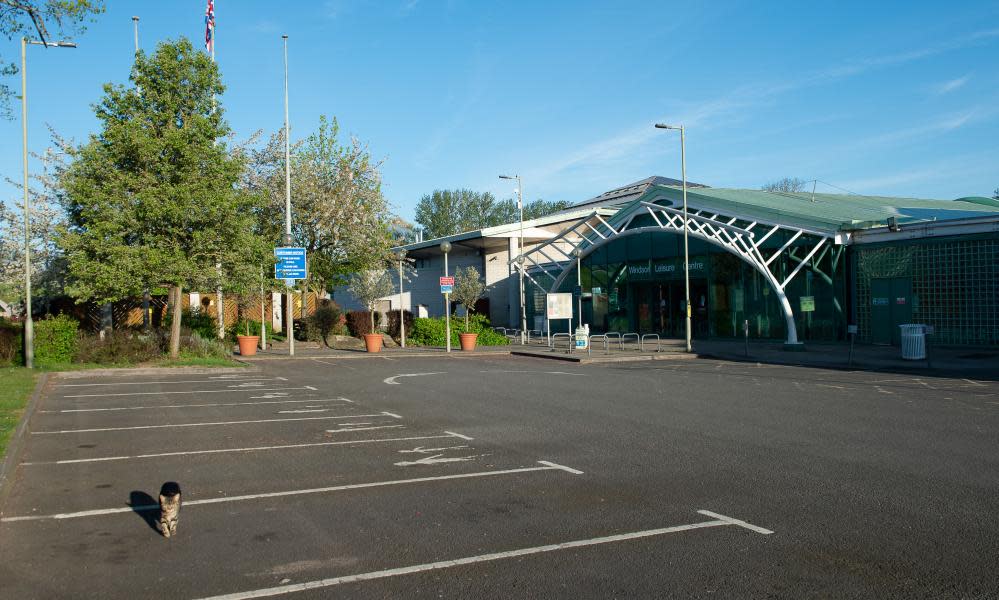English councils warn £500m Covid-19 cash injection will not stop cuts

Councils in England and Wales have reacted with disappointment to an emergency funding package for local government aimed at helping them cope with the spiralling extra costs of the coronavirus crisis, warning it was not enough to prevent further cuts to local services.
The package, announced by ministers on 2 July, proposed a £500m coronavirus cash injection for England alongside a scheme to defer lost council tax and business rate takings, and part-compensate councils for reduced income from car parking, museums and leisure centres.
Town halls said the £500m package left a £1.2bn gap in funding this year, fuelling their anger that the government had broken promises made at the start of lockdown to “do whatever it takes” to ensure local authorities were able to meet the cost of Covid-19.
In addition to the £500m for English councils, under the proposed package £50m will go to the Scottish government, £30m to the Welsh government and £15m to the Northern Ireland executive .
The Local Government Association, which mainly represents English and Welsh local authorities, said that while it welcomed the announcement, it was disappointed that the funding package did not go far enough to give councils financial certainty or prevent further cuts to services.
Rob Whiteman, head of Cipfa, the local government accountants’ body, said councils faced their toughest-ever round of budget planning for next year. “Residents up and down the country are likely to experience service reductions as councils meet their statutory duty to balance budgets.”
Stephen Houghton, chair of the Sigoma group of urban councils in England, said: “This cannot be the last intervention on cost pressures for councils as the £500m provided will only potentially cover our members till the end of this month, meaning many will still face substantial in-year deficits. The risk of significant cuts and section 114 notices [declarations of insolvency] has not gone away.”
Related: Eight out of 10 English councils at risk of bankruptcy, says study
David Williams, chair of the County Councils Network, a lobby for 37 mainly Tory-controlled authorities in England, said: “With costs continuing to rise and no guarantees over compensation for lost council tax and business rates, many of our member councils still face financial uncertainty this year and next”
The 2 July announcement followed warnings from local authorities in England that they faced a net shortfall of £7.4bn this year, with many forced to take emergency action to reduce spending or face insolvency unless government stepped in with more support.
Robert Jenrick, the local government secretary, praised councils for their role during the pandemic and said: “This government will continue to stand shoulder to shoulder with councils and communities as we recover from this pandemic, as we renew our commitment to unite and level-up the country.”
The £500m cash injection, which will be shared among 343 councils in England, came on top of two previous tranches of financial support in March and April amounting to £3.2bn, and £600m earmarked for social care providers.
In addition, councils would be compensated at the rate of 75p in the pound where they had lost more than 5% of their expected income this year from sales, fees and charges – meaning income from rents, car parking, museums and leisure centres.
The income compensation scheme will not cover financial losses incurred in council-owned commercial businesses – Luton and Manchester councils own their local airports, which have been hit hard by Covid-19 – or losses in council investments in commercial property, intended to part-fund local services.
In addition, the government said accounting rules would be changed to ease councils’ cashflow pressures by allowing them to spread the impact of losses from the non-payment of council tax and business rates over three years, rather than the usual one.
Jonathan Carr-West, chief executive of the Local Government Information Unit thinktank said the extra cash was welcome but unlikely to be enough. “The real problem here is that we are plugging gaps rather than getting ahead of the situation. And we still have no settled, sustainable, long-term plan for funding local government.”
Adam Lent, director of the New Local Government Network thinktank said: “The bottom line is that this [extra funding] is a help but does not guarantee that there will not be cuts to vital public services. It will also leave councils very wary or unable to step up if there is a second wave [of coronavirus].”


